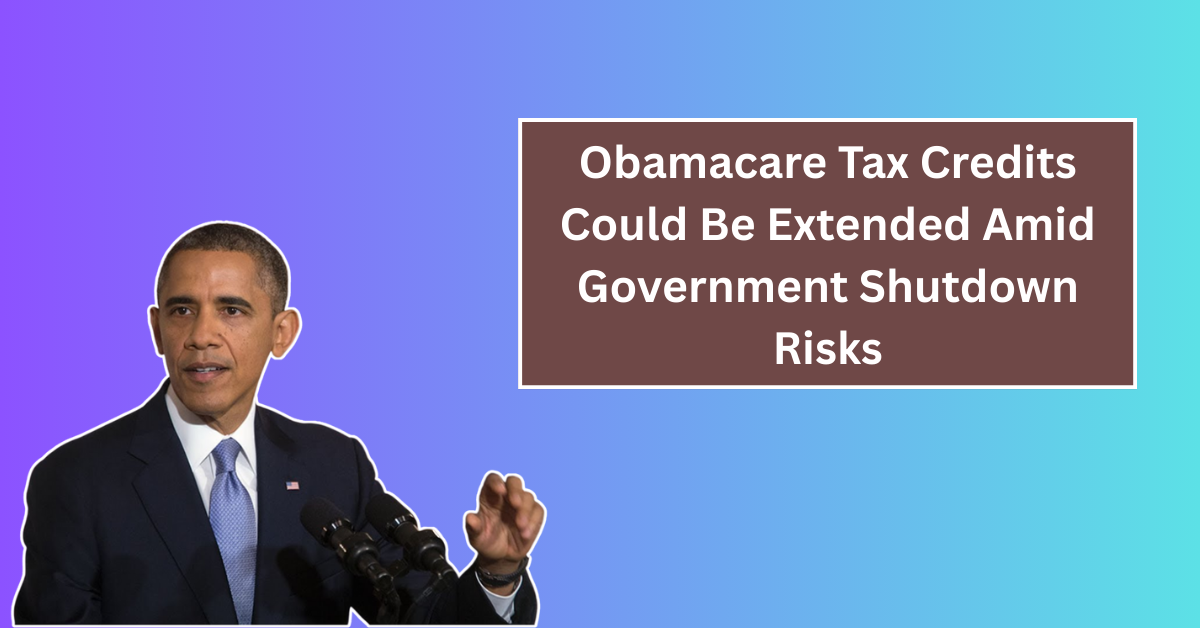The potential extension of Obamacare tax credits has become a hot topic in Washington as the federal government faces a looming shutdown battle. These tax credits have helped millions of Americans afford health insurance through the Affordable Care Act’s Marketplace, and their continued availability is now uncertain due to political disagreements.
Young adults and middle-income families in particular could be impacted by changes to these subsidies. As lawmakers negotiate the federal budget and consider short-term funding measures, the fate of these crucial tax credits hangs in the balance. Understanding how this may unfold is essential for anyone relying on Obamacare coverage.
Understanding Obamacare Tax Credits and Their Importance
Obamacare tax credits, also known as premium tax credits, are subsidies designed to make health insurance more affordable for people who purchase coverage through the Health Insurance Marketplace. These credits reduce monthly premium costs based on income and household size, ensuring more individuals have access to quality healthcare.
Since their introduction, millions of Americans have benefited from these credits. For younger people, especially those starting out in their careers, the tax credits often make the difference between being insured or uninsured. Without these subsidies, many would face prohibitively expensive premiums.
The Current Political Climate Surrounding the Tax Credits
The extension of these tax credits has taken on greater urgency with a potential government shutdown looming. Federal funding and budget negotiations have stalled in Congress, leaving many programs, including health subsidies, in a state of uncertainty.
Some lawmakers advocate for extending the enhanced tax credits to maintain affordability for Americans during ongoing economic challenges. Others oppose increased spending or want changes to the program’s structure. This political impasse is fueling concerns about whether the subsidies might be allowed to expire.
How a Government Shutdown Could Affect Obamacare Subsidies
A government shutdown occurs when Congress fails to pass funding legislation, causing non-essential services to halt operations temporarily. While health insurance programs generally continue, the funding and administration of premium tax credits could face disruptions.
If the subsidies are not extended, millions of people who depend on them could see their insurance premiums spike. This could lead to a rise in uninsured rates, especially among younger and lower-income populations who are most sensitive to price changes. Additionally, enrollment periods and assistance programs may be impacted, creating confusion and barriers to coverage.
Recent Statistics Highlighting the Impact of Tax Credits
| Year | Number of Americans Receiving Tax Credits (Millions) | Average Monthly Premium Reduction ($) | Uninsured Rate Among Young Adults (%) |
|---|---|---|---|
| 2019 | 12 | 380 | 14 |
| 2021 | 14 | 450 | 12 |
| 2023 | 15 | 475 | 11 |
These numbers underscore how premium tax credits have been instrumental in lowering costs and decreasing the uninsured rate, particularly for the younger segments of the population. Eliminating or reducing these credits could reverse these gains.
Potential Outcomes If Tax Credits Are Extended
Should lawmakers agree to extend the tax credits, it would likely ensure continued affordable access to health insurance for millions. Young adults and working families would benefit from predictable and manageable premium costs, encouraging enrollment and maintenance of coverage.
Additionally, extending subsidies could foster improved financial stability for healthcare providers and insurance companies by maintaining a steady pool of insured individuals. This stability helps prevent premium spikes that can occur when healthier people drop coverage.
What Extension Means for Young Adults
Young adults, including recent college graduates and first-time full-time workers, often find insurance coverage challenging due to limited income and entry-level wages. Extended tax credits mean lower monthly payments for this group, significantly reducing their financial burden.
Moreover, younger populations generally have fewer health conditions and thus benefit from lower overall healthcare costs. Keeping them insured through subsidies helps balance risk pools and prevents future spikes in premiums across all age groups.
Challenges and Opposition to Extension of Subsidies
The primary opposition to extending these tax credits stems from concerns about government spending and the national deficit. Critics argue that continuing or expanding subsidies requires unsustainable financial commitments.
Others suggest reforms to target subsidies more narrowly or to promote market competition as better long-term solutions. These differing philosophies have led to stalemates in legislative negotiations, making extension uncertain.
Ways You Can Stay Informed and Prepare
For those currently using Obamacare or considering it, staying tuned to federal updates and health insurance marketplace announcements is critical. Enrollment deadlines and subsidy availability may change quickly based on ongoing budget decisions.
Young people should also explore alternative healthcare options and community resources while being aware of potential changes. Consulting with healthcare navigators can provide clarity on their specific situation and eligibility.
What Experts Recommend Moving Forward
Healthcare experts emphasize the importance of maintaining affordable insurance access to support public health and reduce long-term costs associated with uninsured care. They encourage bipartisan cooperation to avoid disruptions that could harm millions.
Many advocate for extending subsidies temporarily while longer-term health policy reforms are designed, ensuring no coverage gaps arise during political negotiations.
Conclusion: The Road Ahead for Obamacare Tax Credits
The possibility of a government shutdown adds a layer of complexity to the future of Obamacare tax credits, which remain vital for making health insurance affordable for millions of Americans. Young adults stand to benefit significantly from any extension, helping them manage their finances while staying covered.
Staying informed and engaged with policy developments will be key as the situation unfolds. Ultimately, the fate of these subsidies will shape access to healthcare for a significant portion of the population in the coming year.




